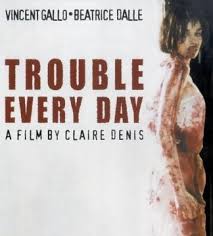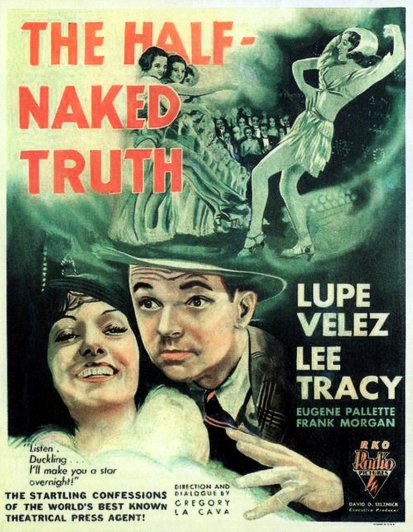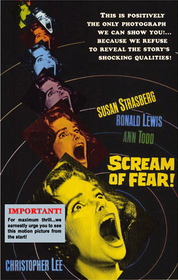Sisters (US 1973 - 92min.) Directed by Brian De Palma, written by De Palma and Louisa Rose
"What the Devil hath joined together let no man cut asunder."
An ambitious journalist thinks she has got hold of a career-making story when she witnesses a murder at her neighbour's house - but as she tries to find evidence of the crime, she discovers events are not as straightforward as she thought. Starring Margot Kidder, Lisle Wilson and Jennifer Salt.
It's impossible to discuss this film without making reference to Hitchcock, so let's get that out of the way first.
Sisters was De Palma's first feature length work and his love and worship of Hitchcock is evident in almost every frame - there's echoes and references back to (at least)
Vertigo, Rear Window and
Notorious, there's a under-hypnosis section with more than a hint of
Spellbound about it, the closing shot puts us in mind of
The Birds and the entire structure of the story owes a large debt to
Psycho.
Now, to my way of thinking this doesn't matter too much - plenty of directors (rightly) admire Hitchcock's way with a thriller and many have littered their films with
homages, references and downright rip-offs from his work, De Palma is at least honest in acknowledging the fact. He would continue to reference back in almost all of his work throughout the seventies and eighties, but nowhere is the debt and devotion more on view than in this film.
As to the film itself : it's charmingly askew with all sorts of elements chucked together with the aim of hoping they stick together. There's a sinister doctor straight out of any number of sixties TV melodramas, Charles Durning plays a PI who tags along on Jennifer Salt's investigation and who seems to exist largely as comic relief, there's a gory murder, there's sex (inter-racial sex at that), a cake that is both a clue and a plot device (and echoes the central device of Hitchcock's
The Lady Vanishes), hypnotism/bad trip, 'found' footage, a TV game show spoof and a double twist ending.
It's a lot to pack into ninety minutes of running time and some elements feel under-developed, but De Palma's skill is evident from the way that he just about manages to keep all of the plates spinning.
The bulk of the story is set on Staten Island and De Palma makes good use of this under-used part of New York to provide a realistic backdrop to the fantastic elements of the story; at one point we visit Manhattan and there's some thrilling guerrilla footage shot among streets and signs that have now disappeared beneath the re-developers bulldozer.
The film was also the breakthrough role for it's lead actor. Margot Kidder is (for some reason which isn't clear from the film) asked to deliver her lines with a French-Canadian accent ; although she does this perfectly well some poor sound recording means that at times you do have a struggle trying to make out exactly what it is that she's saying.
Kidder's (sort of) 'dual' role gives her plenty to work with and she makes the absolute best of the opportunity - she's by turn kittenish and playful, puts in a good drunk turn, threatening, scheming, devious, the victim and the predator.
I've always felt that she was badly served by Hollywood - after some terrific work in low visibility films such as this and
Black Christmas (1974) she was pitched slap-bang into the middle of the mainstream by
Superman (1978) after which the studios seemed to be a bit flummoxed as to what to do with her.
Thirty years old when she played Lois Lane she was difficult for Hollywood to fit into one of their neatly stacked pre-arranged moulds : too old to play juvenile leads, too attractive to be a character actor, too smart to lose in the background/ best friend/ plot mover role usually prefaced by "and featuring" in the opening credits.
Two years after
Superman II (1980) she was already back int he world of TV movies which she must have thought she had left behind forever after fame came knocking. From there it was a short walk to voice work for films, TV and video games and TV bit-work; until a recent revival now that she
is of a physical age to play elder statesman roles, something which she, of course, has done with great skill.
Terrible waste of talent for twenty years though.
Sisters is an entertaining watch, there's plenty going on both on-screen and within the text. It's obvious that De Palma would go on to have a career within the mainstream from the neat way in which he arranges the elements of the story and the visual flair and (borrowed) style on show.
Just a shame about Margot Kidder's career really.


.jpg/220px-Sisters_(1973).jpg)






